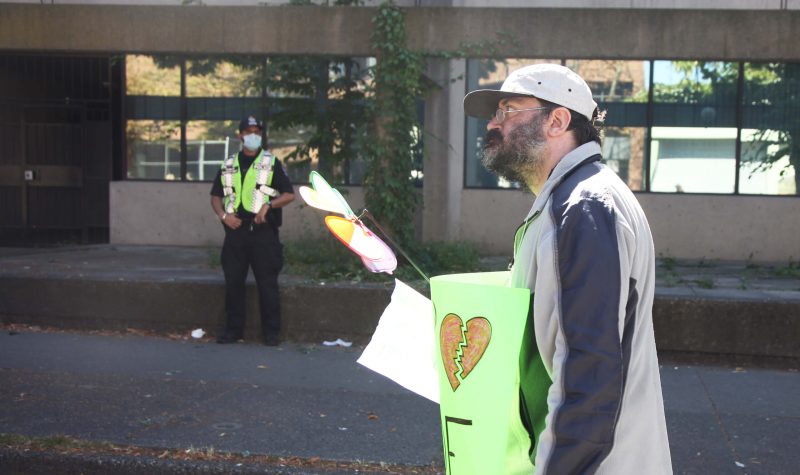By David P. Ball
Drug users, advocates and doctors are calling for long-term fixes to the overdose crisis and 'over-incarceration' of people who use drugs, but welcomed policy shift Wednesday.
Drug user groups, defence lawyers and rights advocates welcomed a major policy shift by Canada's agency overseeing Crown prosecutors this week, after the Public Prosecution Service of Canada revised its instructions for drug possession charges across the country, encouraging alternatives to charging drug users with possessing illegal drugs.
"Important step in right direction in the midst of opioid crisis and targeting of Indigenous, Black, homeless people by drug arrests," said the B.C. Civil Liberties Association on Wednesday. "However, (the) new directive still allows discretion to prosecute. "BCCLA continues to call for complete decriminalization of simple drug possession."
The federal agency now tells prosecutors only to pursue convictions when there are threats to public safety, for instance danger to children, threats or weapons charges.
"We’ve revised our approach to simple possession offences under the Controlled Drugs and Substances Act," the federal agency wrote on Twitter on Tuesday, "…directing (prosecutors) to focus on prosecuting cases raising public safety concerns … (and) to pursue suitable alternative measures including restorative justice and Indigenous approaches and divert simple possession cases from the criminal justice system."
It could signal a major shift in the over-incarceration and policing of drug users, particularly those who are people of colour, Indigenous people and those living in poverty. Prosecutors are being instructed to seek "alternative measures."
According to federal data, the majority of Crown prosecutors' cases last year involved "involved drug-related offences," more than three-quarters of all their files. Just 16 per cent of prosecutors' files, meanwhile, fell under the Criminal Code.
"This is a step in the right direction," wrote the Canadian HIV/AIDS Legal Network on Twitter. "While a positive development, there are still some problematic parts of it. They've cast wide nets as to what would be the most serious manifestations of the offence,' including simple possession in jail or possession 'in the vicinity of small children.'
"It's definitely a welcome development, but not yet good enough."
Dr. Nanky Rai, of the Overdose Prevention Society of Toronto, told a panel Wednesday organized by the Harm Reduction Coalition that the grassroots battle for decriminalizing drugs must continue to end the criminalization of addiction.

"Harm reduction, COVID-19 and people who use drugs" panellists: Dr. Kim Sue, Garth Mullins, Nanky Rai & Dr. Mark Tyndall. Photos courtesy of Dr. Kim Sue and the Harm Reduction Coalition.
"We need to collectively organize and ensure we're fighting for the defunding of police, fighting for the de-carceration of our communities and our societies, and also fighting for decriminalization — as some of the urgent, necessary policy and political shifts that need to happen to reduce the overdose crisis (and) the over-policing and incarceration of people who use drugs," Rai said.
On The Pulse on CFRO, hear an online panel discussion and harm reduction, drug user rights and solutions to the overdose crisis hosted on Aug.17 by the Harm Reduction Coalition.
--
Links:


